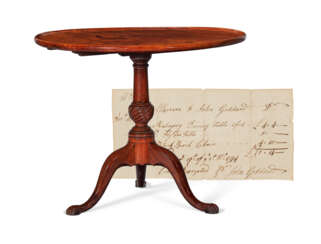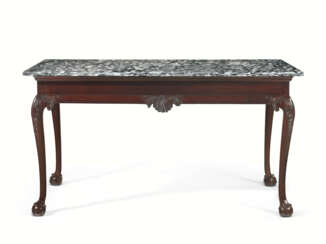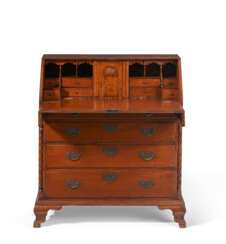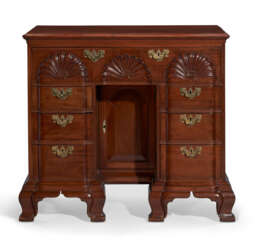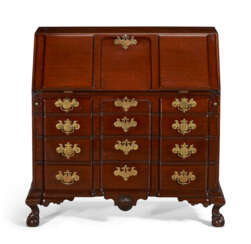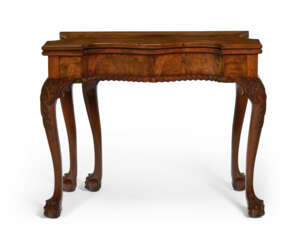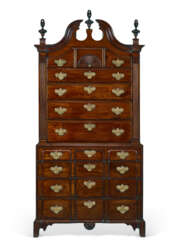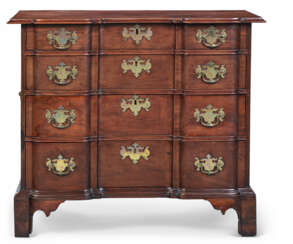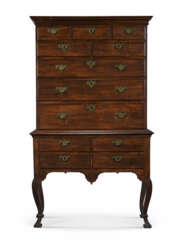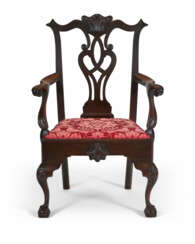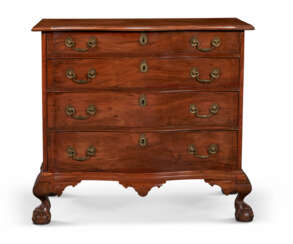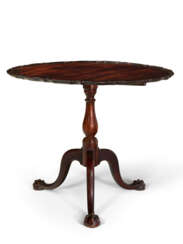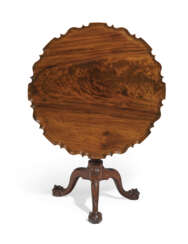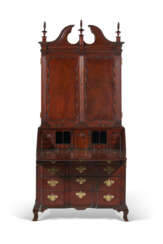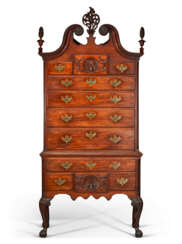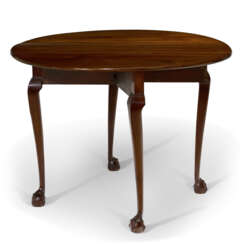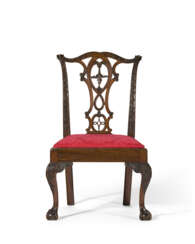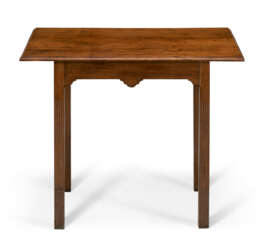Chippendale (1750-1780) — Auction price
_4.jpg)
John Goddard (1724–1785) was a distinguished American cabinetmaker whose work significantly influenced 18th-century furniture design, particularly in Newport, Rhode Island. Born on January 20, 1724, in Dartmouth, Massachusetts, Goddard apprenticed under Job Townsend, a prominent Newport cabinetmaker. This apprenticeship not only honed his craftsmanship but also led to his marriage to Townsend's daughter, Hannah, further solidifying his ties to the esteemed Townsend-Goddard furniture-making dynasty.
Establishing his own workshop in Newport, Goddard became renowned for his exceptional skill and innovative designs. He is credited with originating the block-front knee-hole desks and secretary desks, which became highly sought after by affluent clients. His creations are characterized by distinctive features such as the block-front facade, intricately carved shells, and robust ball-and-claw feet. These elements not only exemplify the aesthetic preferences of the period but also showcase Goddard's meticulous attention to detail and mastery of proportion.
One of Goddard's most notable patrons was Nicholas Brown, a prominent Providence merchant. In the early 1760s, Brown commissioned a set of elaborately carved mahogany side chairs from Goddard. These chairs, distinguished by their pierced crest shells, double-scrolled splats, and elegantly shaped stretchers, are considered masterpieces of Newport craftsmanship. The collaboration between Goddard and Brown underscores the cabinetmaker's reputation as "the neatest workman in America," a testament to his superior craftsmanship and design sensibilities.
Goddard's influence extended beyond his lifetime, as his workshop became a training ground for future artisans, including his sons. Following the British occupation of Newport, three of his sons relocated to Nova Scotia, where they continued the family's cabinetmaking tradition, thereby disseminating the Newport style to new regions. The Goddard family's contributions to furniture making have left an indelible mark on American decorative arts, with their pieces remaining highly prized by collectors and museums alike.
Today, John Goddard's works are preserved in esteemed institutions such as The Metropolitan Museum of Art, which houses a side chair attributed to him. This chair exemplifies the characteristic Newport knee carving and the spherical ball feet associated with Goddard's style, serving as a tangible representation of his enduring legacy in American furniture design.
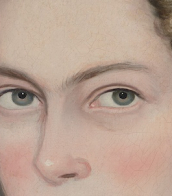
_4.jpg)
John Goddard (1724–1785) was a distinguished American cabinetmaker whose work significantly influenced 18th-century furniture design, particularly in Newport, Rhode Island. Born on January 20, 1724, in Dartmouth, Massachusetts, Goddard apprenticed under Job Townsend, a prominent Newport cabinetmaker. This apprenticeship not only honed his craftsmanship but also led to his marriage to Townsend's daughter, Hannah, further solidifying his ties to the esteemed Townsend-Goddard furniture-making dynasty.
Establishing his own workshop in Newport, Goddard became renowned for his exceptional skill and innovative designs. He is credited with originating the block-front knee-hole desks and secretary desks, which became highly sought after by affluent clients. His creations are characterized by distinctive features such as the block-front facade, intricately carved shells, and robust ball-and-claw feet. These elements not only exemplify the aesthetic preferences of the period but also showcase Goddard's meticulous attention to detail and mastery of proportion.
One of Goddard's most notable patrons was Nicholas Brown, a prominent Providence merchant. In the early 1760s, Brown commissioned a set of elaborately carved mahogany side chairs from Goddard. These chairs, distinguished by their pierced crest shells, double-scrolled splats, and elegantly shaped stretchers, are considered masterpieces of Newport craftsmanship. The collaboration between Goddard and Brown underscores the cabinetmaker's reputation as "the neatest workman in America," a testament to his superior craftsmanship and design sensibilities.
Goddard's influence extended beyond his lifetime, as his workshop became a training ground for future artisans, including his sons. Following the British occupation of Newport, three of his sons relocated to Nova Scotia, where they continued the family's cabinetmaking tradition, thereby disseminating the Newport style to new regions. The Goddard family's contributions to furniture making have left an indelible mark on American decorative arts, with their pieces remaining highly prized by collectors and museums alike.
Today, John Goddard's works are preserved in esteemed institutions such as The Metropolitan Museum of Art, which houses a side chair attributed to him. This chair exemplifies the characteristic Newport knee carving and the spherical ball feet associated with Goddard's style, serving as a tangible representation of his enduring legacy in American furniture design.

